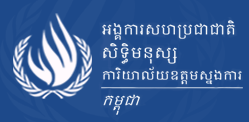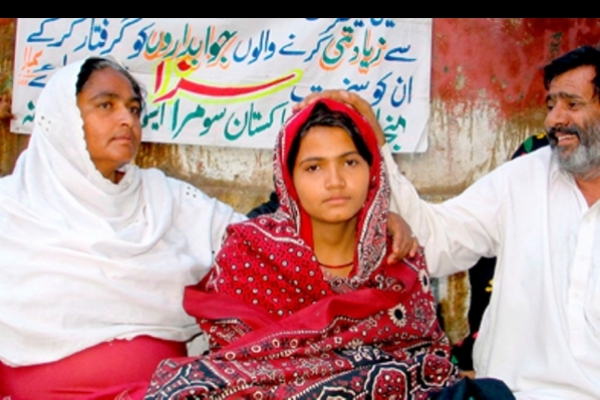

Geneva (30 June 2017) - In order to truly end violence and discrimination against women and girls, men and boys must be seen as more than part of the problem; they have to be seen as integral to the solution, said Professor Lana Wells from the University of Calgary in Canada.
“We need them to be engaged in order to stop violence against women,” Wells said. “We know that men and boys have a lot of privilege, a lot of influence and so we need them both promoting and building gender equality, as well as promoting healthy relationships and rebuilding what it means to be a man.”
Wells took part in a recent panel discussion about engaging men and boys in preventing and responding to violence against women and girls, which took place at the Human Rights Council. The discussion featured members of groups who work with men and boys to help unseat deep-rooted attitudes that impede women and girls’ enjoyment of their human rights.
Change harmful stereotypes
Fighting gender-based violence has been on the national and international agenda for decades, and yet still one in three women will report experiencing violence in their lifetime, said UN Deputy High Commissioner for Human Rights Kate Gilmore. One way to combat this violence, is through getting rid of rigid stereotypes of gender roles “which strip all of us of our individuality by defining us only in terms of our sex,” she said.
“We can prevent gender based violence and uphold the human rights of all people if we make a concerted effort to dismantle and transform these harmful social norms,” Gilmore told the audience. “To do this, we must pursue multiple entry points. For instance, ensuring that adolescents benefit from comprehensive sexuality education, which teaches about respect, individual autonomy and consent, is critical.”
Another way to combat the violence is to promote positive masculinity, by getting the silent majority of men, who do not agree with harmful practices and attitudes, to speak out, said Abhijit Das, founder of Men’s Action for Stopping Violence against Women in India and co-chair of MenEngage Alliance, a coalition of NGOs that work with men and boys to promote gender equality. Das has found in his work that once more men are vocal about promoting equality or stopping harmful practices, it tends to eventually persuade other men within the community to shift from the old and conservative views.
“A single man gets overwhelmed by social opposition,” he said. “But when you have a group of men who say ‘We believe differently’ or ‘We will act differently’…you slowly establish an alternative social norm.”
In order for men to engage in this process, there has to be a challenge to the idea that men are inherently violent, said Anthony Keedi, Masculinities Technical Adviser for the ABAAD Resource Centre for Gender Equality in Lebanon.
“When we start questioning the concept of what it means to be a man, a human being, particularly in conflict contexts, we see that violence is not inherent in men, it is learnt,” he said. “Thus changing men into agents of change, peace and gender equality is possible through transformational change. The goal is to become a real human being, because men’s values go far beyond just to provide for their families or just showing strength, it can be in giving care, it should be in parenting and showing every facet of human being life. Thus eliminating the excuse of some men that they have to protect women, and therefore (prevent them) from promoting women’s independence.”
In the end, continued violence against women and girls, even under the benign guise of protection still hurts us all, said Francis Oko Armah, youth activist and member of Curious Minds in Ghana. Rather than fighting an exterior battle, where you believe that if women gain, men lose, men need to make an internal shift in attitude, he said.
“It is up to us to settle the war within, so that once a woman is on par with us, it does not mean she is better off, or we are less of a man,” Armah said. “We are human and that is what we should understand. This fight for women’s empowerment – ending discrimination and violence – is first of all a fight for humanity.”
30 June 2017